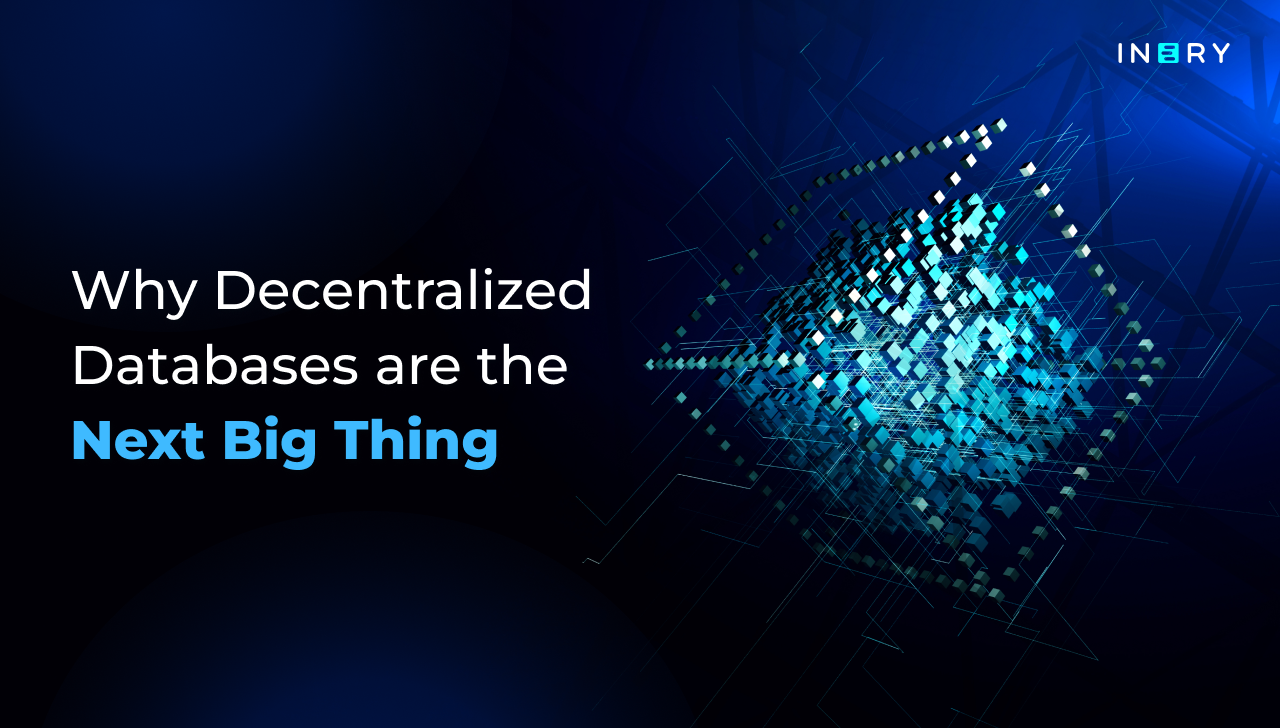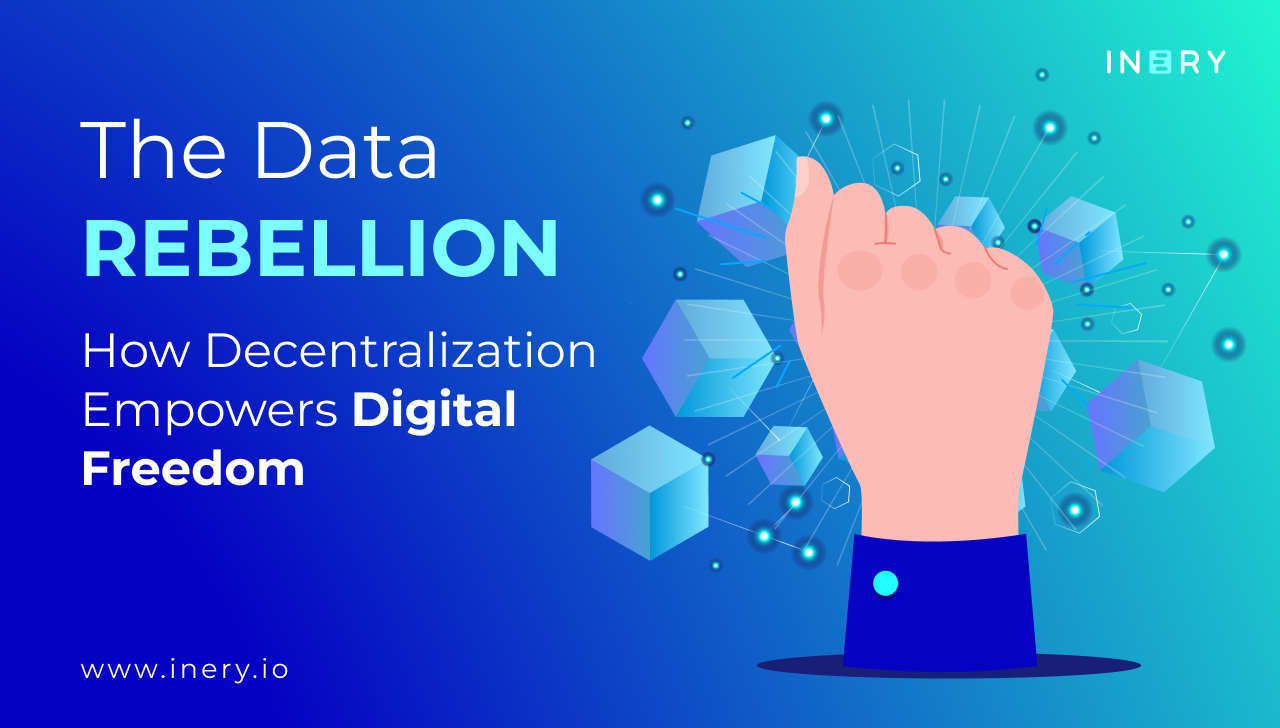Data is ubiquitous, and its significance is undeniable. Every moment, as you read this, data is being generated, analyzed, and utilized in countless ways. It has emerged as one of the most valuable assets in the digital age.
The way we manage, store, and secure this data has significant implications for both individuals and organizations. Traditional centralized databases have long been the backbone of data management.
However, the emergence of decentralized databases is poised to revolutionize this space, offering enhanced security, scalability, and user control.
A Brief Historical Overview
Databases have undergone significant evolution since their inception, reflecting the growing complexity and scale of data management needs. The journey began in the 1960s with hierarchical and network models.
These early databases were designed to handle specific, structured data but were limited by their rigid frameworks. The hierarchical model, exemplified by IBM's Information Management System (IMS), arranged data in a tree-like structure, making it efficient for certain types of data retrieval but inflexible for more complex relationships.
In the 1970s, the relational database model, proposed by Edgar F. Codd, revolutionized the way data was stored and accessed. Relational databases, such as IBM's System R and later Oracle, organized data into tables that could be linked by common fields (keys).
This model offered significant advantages in terms of data flexibility, integrity, and query efficiency. SQL (Structured Query Language) became the standard language for interacting with relational databases, further solidifying their dominance.
The 1990s introduced NoSQL databases, developed to address the limitations of relational databases, particularly their challenges in scaling horizontally and handling unstructured data. NoSQL databases, including MongoDB, Cassandra, and CouchDB, offered greater flexibility by allowing for a variety of data models (document, key-value, column-family, and graph).
They were designed to support large-scale, distributed data environments, making them ideal for big data applications and real-time web applications.
Throughout the 2000s and 2010s, the rise of big data and cloud computing further pushed the boundaries of database technology. The need for scalable, distributed storage solutions led to the development of cloud databases, such as Amazon's DynamoDB and Google Bigtable, which provided managed database services with high availability and scalability.
These databases could handle massive volumes of data across distributed networks, making them essential for modern web services and applications.
Centralized Databases
Centralized databases store data in a single location, controlled by a central authority. This model simplifies data management but also has significant drawbacks.
Key issues include:
Single Point of Failure: Or in other words – If the central server fails, the entire database becomes unavailable.
Scalability Limits: Centralized databases struggle with scaling as the load on the central server increases.
Security Risks: A centralized system is a prime target for cyberattacks, and a successful breach can compromise all the data stored.
Data Silos: Data is often isolated, making it difficult for different parts of an organization to access and utilize the information effectively.
The Emergence of Cloud Databases
Cloud databases brought a significant shift, offering scalable and flexible data storage solutions. Companies could now leverage the power of distributed computing to manage vast amounts of data. According to Statista, the global cloud database and DBaaS (Database as a Service) market is expected to reach $68.6 billion by 2025.
However, cloud databases are not without their issues. They often remain centralized, creating potential single points of failure and making them susceptible to the same security risks as traditional databases. Additionally, reliance on third-party service providers raises concerns about data privacy and control.
The Downfall of Centralized Systems
Despite their benefits, centralized and cloud databases exhibit several inherent weaknesses:
High Maintenance Costs: Managing and maintaining a centralized database infrastructure can be expensive.
Privacy Concerns: Users often have little control over how their data is used and shared.
Limited Resilience: Centralized systems are more vulnerable to outages and cyberattacks.
Why Decentralized Databases are the Next Big Thing
Decentralized databases, such as Inery, offer a compelling alternative by distributing data across multiple nodes, eliminating single points of failure, and enhancing security. Here are some key advantages:
Enhanced Security: Data is encrypted and distributed across the network, making unauthorized access much more difficult. This decentralized structure significantly reduces the risk of data breaches and cyberattacks.
Improved Scalability: As more nodes join the network, the system can handle increased loads more effectively. This scalability ensures that decentralized databases can accommodate growing data needs without sacrificing performance.
Data Immutability: Changes to data are recorded across all nodes, ensuring data integrity and preventing tampering. Once data is written to the blockchain, it cannot be altered, providing a reliable and tamper-proof record.
User Control: Users retain control over their data, with decentralized systems often designed to ensure user privacy and sovereignty. This user-centric approach contrasts with centralized systems where data control is typically in the hands of a single entity.
Several prominent companies are exploring or already using decentralized databases. For example, Arweave and Filecoin offer decentralized storage solutions that prioritize data permanence and security. Arweave uses a "pay once, store forever" model, making it a cost-effective solution for long-term data storage. Filecoin, built on IPFS (InterPlanetary File System), provides a decentralized storage network designed to store humanity's most important information.
Inery, a pioneer in decentralized database management, leverages blockchain technology to enhance security, scalability, and user control. By distributing data across multiple nodes, Inery eliminates single points of failure and ensures that data remains secure and accessible even in the face of network disruptions.
As more organizations recognize the limitations of centralized databases, the adoption of decentralized database solutions is set to increase, marking a significant shift in how data is managed and secured. This transition promises to bring about a new era of data integrity, privacy, and scalability, with Inery and other leading companies paving the way for this transformation.
Inery's Role in the Decentralized Database Revolution
Inery is at the forefront of this transformation. By integrating blockchain technology, Inery provides a decentralized database management system that offers unmatched security, scalability, and user control.
Inery's solution eliminates common issues associated with centralized databases, such as single points of failure and high maintenance costs. Furthermore, Inery supports both Web2.0 and Web3.0 environments, providing a seamless transition for organizations looking to modernize their data infrastructure.
The shift towards decentralized databases is not just a trend but a necessary evolution in data management. With companies like Inery leading the way, the future of databases promises to be more secure, scalable, and user-centric. Embracing decentralized databases could be the key to unlocking new levels of efficiency and security in the digital age.

Inery•
2 years ago
SQL Vs NoSQL: When to Use One Over the Other
SQL and NoSQL have different recommended use cases. Click here to learn which one is more useful to you. ...READ MORE
-1691048052.png)
Share

Inery•
2 years ago
Flying High With Blockchain in Aviation
Blockchain in aviation adds reliability to a complex industry where the cost of error is sky-high. Click here to learn more. ...READ MORE

Share

Inery•
2 years ago
How to Prevent SQL Injection Attacks
Fending off SQL injection attacks may feel like fighting smoke, but it can be done. Learn how to prevent SQL injection attacks here. ...READ MORE
-1694034161.png)
Share

Inery•
2 years ago
IneryDB 101 - Everything I Need To Know
Whether you're a beginner or tech enthusiast, IneryDB awaits—unlock its full potential and stay informed about upcoming features for a seamless experience! ...READ MORE

Share
Most popular today



-1701961591.png)